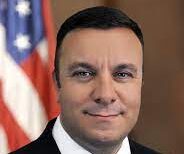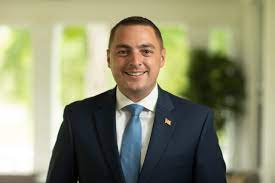What to Expect from Trump’s Foreign Policy in the Coming Term

By Myrek Zastavnyi
As the dust settles from the election, the question on everyone’s mind is how Donald Trump’s second term will reshape U.S. foreign policy. While the Biden administration has grappled with multiple crises abroad—from Afghanistan to Ukraine and Israel—the upcoming shift in leadership presents an opportunity for a complete reevaluation of America’s role on the global stage.
Despite America’s strong economic indicators, there is a widespread sense of disillusionment among the electorate, with public approval of Biden falling below 40%. This discontent, paired with a strong Republican showing in the election, suggests that the American people are ready for a change. Trump, who has long positioned himself as a decisive leader willing to challenge the establishment, has made it clear that he intends to undo much of Biden’s approach, including international affairs.
The key difference between Biden and Trump is their approach to international engagement. The Biden administration’s handling of foreign affairs has been widely criticized for lacking both clarity and decisiveness. The chaotic withdrawal from Afghanistan remains a point of contention, with many pointing to it as a symbol of the U.S. retreat from global leadership. Likewise, despite vocal support for Ukraine’s struggle against Russian aggression, Biden’s efforts have often been seen as insufficient to secure a victory for Ukraine, leaving the situation in limbo. The situation in Israel, similarly, highlights the limitations of Biden’s foreign policy, where reactive rather than proactive measures have dominated.
It is within this context that Trump’s return to power could bring about significant changes. Trump has repeatedly vowed to bring an end to “endless wars,” signaling a potential withdrawal from military entanglements that don’t directly serve American interests. But while his isolationist rhetoric appeals to those weary of foreign intervention, it’s unclear how such a stance will reconcile with the need to confront global threats like Russia and China. The U.S. has long positioned itself as the leader in the fight for democracy and freedom, a role that Trump may feel compelled to redefine.
Trump’s stance on Ukraine remains the subject of significant speculation. While many Republicans have voiced concerns over the costs of supporting Ukraine in its fight against Russia, polls consistently show that American voters are still broadly supportive of aiding Ukraine. The issue, however, is not merely one of charity or altruism; it is about the preservation of democratic values and the role of the U.S. as a global leader. Trump, who has often expressed admiration for authoritarian figures like Vladimir Putin, poses a significant challenge in terms of how far he would go to support Ukraine, especially given the growing influence of voices within his camp, like JD Vance, who have raised doubts about continued military aid.
Vance, Trump’s vice president-elect, represents a troubling figure in the context of U.S. foreign policy. A former critic of Trump, Vance has undergone a remarkable transformation, evolving from a “never-Trumper” to one of Trump’s most vocal supporters. However, his current stance on Russia—more aligned with Putin than with American allies—raises serious concerns. Vance has openly questioned the need for the U.S. to support Ukraine, even as Russia continues its aggressive expansionist tactics. This shift reflects a dangerous trend within the Republican Party, where figures like Vance increasingly view Russia through a lens of both economic pragmatism and political convenience, rather than as an adversary to be confronted.
This political evolution, particularly Vance’s trajectory, should be a cause for concern. His rhetoric, now closer to Putin’s sympathizers than to traditional American foreign policy, is a sign of the growing isolationist and pro-Russia elements within the Republican Party. If Vance’s influence grows within the Trump administration, the U.S. could find itself moving away from its commitment to defending democratic nations and towards an appeasement strategy that risks emboldening authoritarian regimes across the globe. Vance’s past comments, which have ranged from calling Trump a “Hitler-like figure” to now fully embracing his foreign policy vision, reflect a lack of consistency and a disturbing willingness to compromise democratic values for political gain.
The uncertainty surrounding Trump’s approach to Ukraine highlights broader concerns about the U.S.’s role in global conflict. While Trump has promised to stop “endless wars,” it remains to be seen whether his administration will take a more active stance against global threats or retreat further into isolationism. His previous term saw a pullback from international commitments, but the growing challenges posed by Russia and China will require a more nuanced approach. Simply withdrawing from foreign conflicts without addressing the root causes of instability could leave the U.S. vulnerable to global power shifts.
Trump’s foreign policy could also heavily focus on economic leverage, with an emphasis on reducing U.S. dependence on foreign oil. By boosting domestic energy production, Trump may seek to weaken adversaries like Russia, who rely on their energy exports to assert global influence. While this may benefit the U.S. economically, it also raises questions about how the administration will balance energy priorities with broader strategic interests. The global consequences of such a shift are unclear, but it is likely that Trump’s stance will continue to prioritize national self-interest over maintaining traditional alliances.
In conclusion, while Trump’s foreign policy promises to bring a more assertive, America-first approach, the reality of dealing with global threats like Russia, China, and the Middle East will test his administration’s resolve. The potential influence of figures like JD Vance, whose views on Russia align disturbingly with those of authoritarian leaders, raises significant concerns about the direction in which the U.S. is headed. As Trump steps into office, the world will be watching closely to see whether he truly embraces a leadership role for the U.S. or continues down a path of isolationism that may leave both the nation and its allies vulnerable.
Stephen Kitar contributed to this report.






